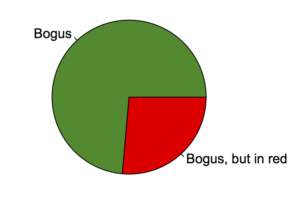Polls that aren’t any use
From last week in the Herald: 73.6 per cent of landlords plan rent rises if Labour wins. It’s been a while since I noticed a bogus-poll headline, but they keep coming back.
This time there are two independent reasons this number is meaningless. First, it’s a self-selected survey — a bogus poll. You can think of self-selected surveys as a type of petition: they don’t tell you anything useful about the people who didn’t respond, so the results are only interesting if the absolute number responding in a particular category is surprisingly high. In this case, it’s 73.6% of 816 landlords. According to an OIA request in 2015, there are more than 120,000 landlords in NZ, so we’re looking at a ‘yes’ response from less than half a percent of them.
Second, there’s an important distinction in polling questions to worry about. If a nice pollster calls you up one evening and asks who you’re voting for, there’s no particular reason to say anything other than the truth. The truth is the strongest possible signal of your political affiliation. If a survey asks “will you raise rents if Labour gets in and raises costs?”, it’s fairly natural to say “yes” as a sign that you don’t support Labour, whether it’s true or not. There’s no cost to saying “yes”, but if you’re currently setting rents at what you think is the right level, there is a cost to raising them.
Those of you who do arithmetic compulsively will have noticed another, more minor, problem with the headline. There is no number of votes out of 816 that rounds correctly to 73.6%: 600/816 is 73.52941%, ie, 73.5% and 601/816 is 73.65196, ie, 73.7%. And, of course, headlining the results of any poll, even a good one, to the nearest tenth of a percentage point is silly.
Thomas Lumley (@tslumley) is Professor of Biostatistics at the University of Auckland. His research interests include semiparametric models, survey sampling, statistical computing, foundations of statistics, and whatever methodological problems his medical collaborators come up with. He also blogs at Biased and Inefficient See all posts by Thomas Lumley »
